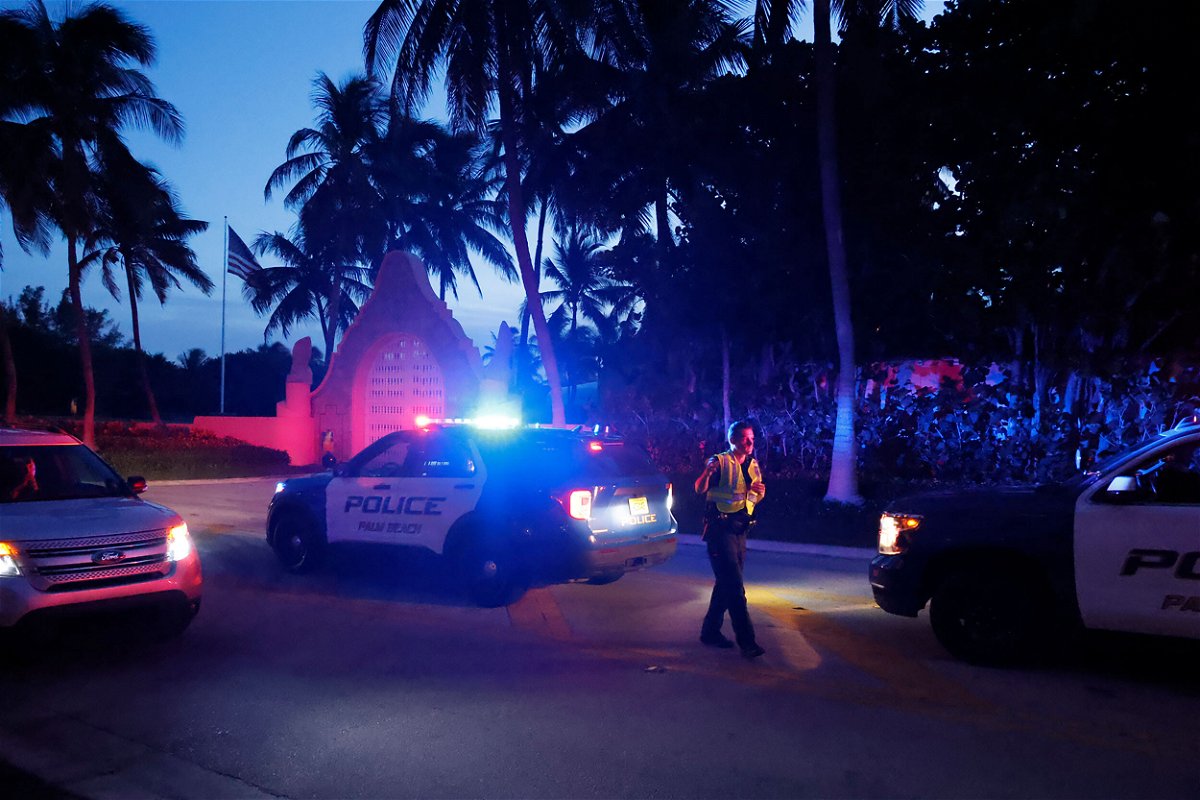What’s next in the fight over the Mar-a-Lago FBI search affidavit

The next steps in the legal fight to bring more transparency into the FBI's search of former President Donald Trump's Florida home will largely take place in secret.
By Tierney Sneed, CNN
A federal magistrate judge on Thursday ordered the Justice Department to release by noon Friday a redacted version of the affidavit it filed with the court when it obtained approval for a warrant to search former President Donald Trump’s Florida home earlier this month.
In the document, the investigators who are probing the handling of classified documents from Trump’s White House would have had to lay out for the judge why they thought there was probable cause for a crime and that evidence existed of that crime at the Florida resort.
The department at first resisted requests filed in court that the affidavit be made public, but was ultimately ordered by US Magistrate Judge Bruce Reinhart to propose a redacted version that could be released publicly. The Justice Department made that submission under seal at around noon Thursday. A few hours later, Reinhart said the proposal was acceptable, as he ordered that the redacted version to be filed publicly.
The affidavit contains “substantial grand jury information,” a Justice Department attorney told Reinhart at a hearing last week, where media organizations — including CNN — and other entities advocated for the public release of the document, which was filed under seal.
Trump has called for the release of the affidavit, as it was not part of the warrant related documents his legal team was provided with the search. But the former President has not yet formally sought to inject himself into this court fight over whether the affidavit should be unsealed, and instead has filed a separate case in front of a different judge where he is asking to see the affidavit in full.
Here’s what we know about what’s about to unfold:
DOJ files proposed redactions under seal
The Justice Department submitted the redactions it believes the affidavit will need if the judge were to release it. With that, the department will also submit legal arguments for why those redactions are necessary.
“The United States has filed a submission under seal per the Court’s order of Aug. 22,” a DOJ spokesman said. “The Justice Department respectfully declines further comment as the Court considers the matter.”
Several media outlets filed a request that the brief containing the DOJ’s legal arguments to be filed publicly with redactions, but the judge has taken action on that request.
Judge satisfied with DOJ’s arguments for parts that will be kept private
The judge said last week that the department had not yet convinced him that the entire affidavit needs to remain under seal. But he has still left himself a little room to change his mind, depending on what the department tells him in this latest round of secret filings.
He wrote in an opinion released Monday that “the present record” did not justify “keeping the entire Affidavit under seal.” He also wrote that “at this point” he wasn’t buying the Justice Department’s argument that once all the needed redactions were made, they would be “so extensive that they will result in a meaningless disclosure.”
“[B]ut I may ultimately reach that conclusion after hearing further from the Government,” he wrote then.
With his later order okaying the affidavit’s release, Reinhart said that he had reviewed the affidavit, the DOJ’s proposed redactions, and its brief explaining the proposed redactions.
The government convinced him, he said, that portions of the affidavit should remained sealed because “disclosure would reveal (1) the identities of witnesses, law enforcement agents, and uncharged parties, (2) the investigation’s strategy, direction, scope, sources, and methods, and (3) grand jury information.”
He concluded that the government had met “its burden of showing that its proposed redactions are narrowly tailored to serve the Government’s legitimate interest in the integrity of the ongoing investigation and are the least onerous alternative to sealing the entire Affidavit.”
But the judge took into account factors favoring transparency
As Reinhart wrote in Monday’s opinion, the Justice Department has already conceded that the warrant involves “matters of significant public concern.”
“Certainly, unsealing the Affidavit would promote public understanding of historically significant events,” Reinhart said. “This factor weighs in favor of disclosure.”
The historical significance of the Mar-a-Lago search also made Reinhart skeptical of another argument the DOJ was making: that the work that will go into making redactions will burden department resources, and could set a precedent that will create similar disruptions and burdens in other cases.
“Particularly given the intense public and historical interest in an unprecedented search of a former President’s residence, the Government has not yet shown that these administrative concerns are sufficient to justify sealing,” the judge wrote.
This story has been updated with additional details.
The-CNN-Wire
™ & © 2022 Cable News Network, Inc., a Warner Bros. Discovery Company. All rights reserved.
CNN’s Katelyn Polantz contributed to this report.